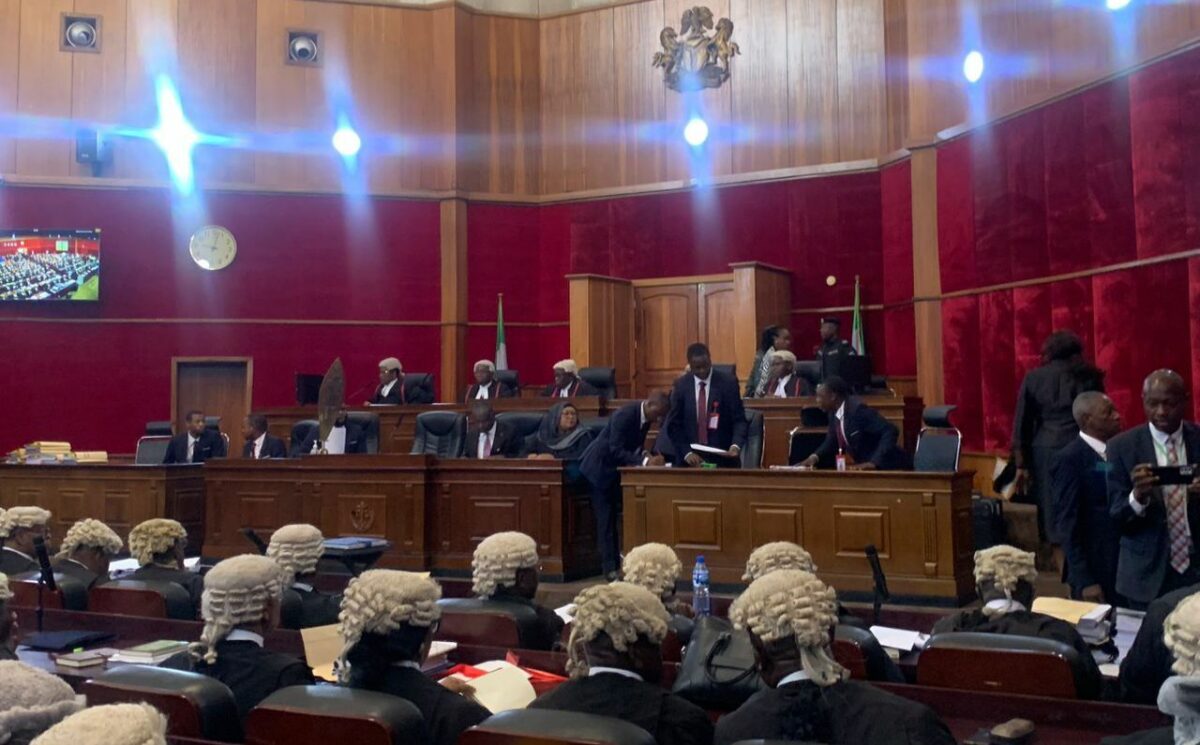Politics
Election Results: INEC Used Third Party Device To Switch Results In Favour Of Tinubu – Atiku
Atiku Abubakar, a candidate for the Peoples Democratic Party (PDP), has accused the Independent National Electoral Commission (INEC) of installing a third-party device that was allegedly used to intercept and alter the results of the February 25 presidential election in favor of Bola Tinubu, a candidate for the ruling All Progressives Congress (APC).
In a 66-page petition, Atiku further alleged that INEC had relocated its in-house ICT expert, Mr. Chidi Nwafor, ahead of the election and replaced him with an IT Consultant who assisted it in setting up the third-party mechanism. The petition was filed before the Presidential Election Petition Court, PEPC, sitting at the Court of Appeal in Abuja.
Atiku claims that the aforementioned IT consultant, Mr. Suleiman Farouk, made sure that the device was used as a conduit between the IRev Portal and the Bimodal Voter Accreditation System, also known as the BVAS and the Device Management System, or DMS.
He testified before the court that Mr. Farouk, INEC’s IT Security Consultant, was able to remotely manage, watch over, and filter data sent from the BVAS devices to the electronic collation system and the IRev platform using the DMS.
“The 1st Respondent (INEC) engaged an appointee of the 2nd Respondent (INEC) to man and oversee the sensitive ICT Department of the 1st Respondent for the purpose of the Election.
‘Third-party device installed’
“The petitioners contend and shall lead evidence to show that contrary to the original design of the BVAS machine to upload data directly to the electronic collation system and the IReV portal, the 1st Respondent contrived and installed an intervening third-party device (Device Management System) which, in its ordinary usage, is meant to secure and administer the 1st Respondent’s technological ecosystem for the elections but as it relates to the presidential election, was used to intercept the results, quarantine and warehouse same, and filter them before releasing same to the IReV portal.
“The 1st Respondent used the said Device Management System to manipulate the election results in favour of the 2nd and 3rd Respondents.
“The petitioners state and shall lead expert evidence to show the critical components of the 1st Respondent’s Information and Communications Technology, ICT, including but not limited to the BVAS which is an Android Device manufactured by Emperor Technologies China and supplied to the 1st Respondent by Activate Nigeria Limited.
The Voter Accreditation System, VAS, which is the software that is used on the BVAS was previously designed and configured in-house and installed on the BVAS by the ICT Team of the 1st Respondent headed by Mr. Chidi Nwafor.
“The VAS was subsequently handed over to Emperor Technology China prior to the Presidential Election and they then preconfigured and installed the software on the BVAS before supplying the devices to the 1st Respondent through Activate Nigeria Limited.
“As it relates to the IReV, the INEC Result Viewing Portal (IReV) is a web-based data entry and aggregation portal designed also by Chidi Nwafor’s team and is hosted on Amazon Web Service, AWS.
“The server system for the device and the portal are hosted on Amazon Web Service (AWS) URL:dashboard.ivasportal.com/dash,” he added
Besides, Atiku, who came second in the presidential election, in the petition he filed alongside his party, PDP, maintained that INEC, having set the parameters of the poll, “did not ensure compliance with the electronic transmission of accreditation data and results in the election to create opportunity for manipulation of figures to the advantage of the 2nd and 3rd Respondents”.
The petitioners said they would during the hearing of the petition, lead evidence to show that there were no technical glitches that prevented the upload and transmission of the polling units results and the accreditation data of the presidential election to the electronic collation system and the IReV portal.
They alleged that what happened was “the non-adherence to the system through a command and control element activated by a pre-programmed design to limit user-privileges of the front-end users of the BVAS machines at the polling units with respect to presidential election results while releasing user privileges in respect of the National Assembly election windows, by selectively withholding correct passwords and/or issuing wrong passwords through the use of the Device Management System equipment aforesaid.”





